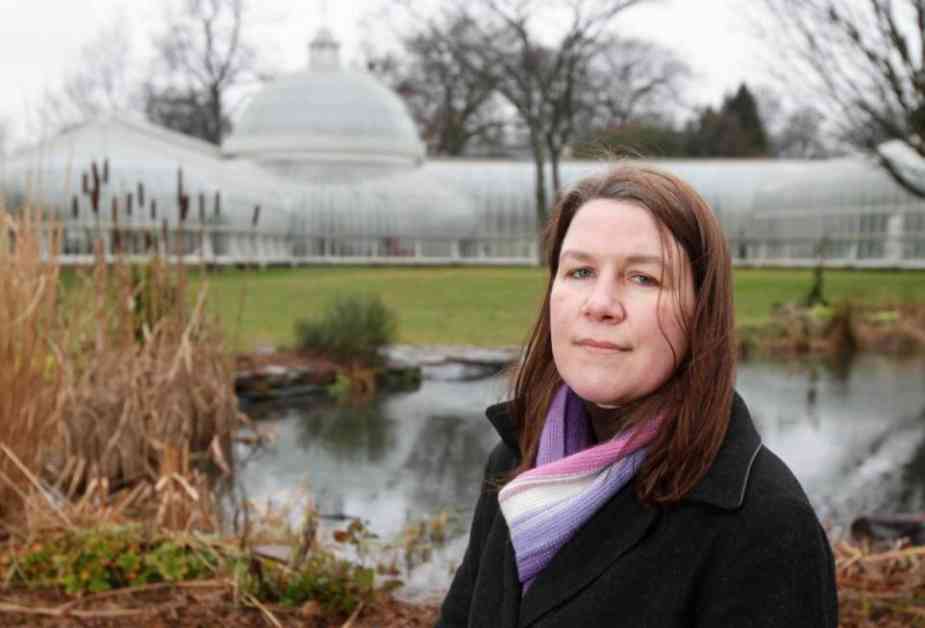Transforming the Energy Market: Bold Action Needed for Change
As winter approaches, thousands of individuals on low incomes or living in fuel poverty are bracing themselves for the harsh realities of higher energy bills. Among those most affected are pensioners who are facing increased financial strain without the vital Winter Fuel Payment they have relied on for assistance.
The recent decision by Labour MPs to scrap the Winter Fuel Payment has sparked outrage among Scottish Greens, who have condemned the move as a betrayal of the promises made to voters. By aligning themselves with Tory austerity measures, these MPs are exacerbating the hardships faced by older individuals and pushing more seniors into poverty.
Statistics reveal that only 12% of pensioners will be able to retain their Winter Fuel Payment under the new regulations. The UK Chancellor’s choice to target pensioners for budget cuts has raised concerns about the government’s priorities and its willingness to prioritize the needs of vulnerable populations.
Public sentiment reflects a growing demand for wealthier individuals to bear a greater tax burden, highlighting the disconnect between political decisions and the desires of the electorate. The decision to cut winter fuel payments is seen as a deliberate choice by the Labour government to mirror the callousness of the Tories, further eroding trust in the political establishment.
The impact of these cuts on pensioners is expected to be severe, particularly in light of the impending 10% increase in energy bills scheduled for October. Many older individuals in Glasgow and beyond are bracing themselves for the financial strain and anxiety that accompany higher utility costs.
For those already struggling to make ends meet, the loss of £300 from the Winter Fuel Payment will only exacerbate their financial challenges. Pensioners may be forced to make difficult choices, such as cutting back on essentials or forgoing necessary expenses, leading to increased stress and health concerns.
In an effort to cope with the rising costs of heating their homes, pensioners may resort to drastic measures such as spending time in public places to stay warm, wearing extra layers of clothing, or limiting the use of household appliances to conserve energy. These makeshift solutions are a stark reminder of the lengths individuals are willing to go to in order to survive in the face of financial hardship.
It is crucial to acknowledge that certain groups of pensioners will be disproportionately affected by these cuts, including those on low incomes, individuals with disabilities or long-term health conditions, unpaid carers, women, and those from working-class backgrounds. The decision to limit Winter Fuel Payments to those in receipt of Pension Credit further compounds the challenges faced by these vulnerable populations.
The lack of support from the UK government for pensioners who fall just above the threshold for Pension Credit is alarming, leaving many individuals with limited options for financial assistance. The decision to means test the Winter Fuel Payment has raised questions about the criteria for eligibility and the broader implications of dividing individuals into deserving and undeserving categories.
While efforts to increase uptake of Pension Credit are commendable, they do not address the immediate needs of pensioners facing financial hardship this winter. The upcoming rise in State Pension rates in April offers little solace to those struggling to make ends meet in the present moment.
In order to address the systemic issues plaguing the energy market and alleviate the burden on vulnerable populations, bold and decisive action is required from policymakers. Closing loopholes in the Windfall Tax, investing more in renewable energy sources, and decoupling the price of fossil fuels from clean energy production are essential steps towards creating a more sustainable and equitable energy system.
The Importance of Renewable Energy Investment
One of the key pillars of transforming the energy market is increasing investment in renewable energy sources. Scotland, with its abundant natural resources and commitment to sustainability, is well-positioned to lead the way in transitioning to a greener energy future.
By harnessing the power of wind, solar, and hydroelectric energy, Scotland has made significant strides in reducing its carbon footprint and increasing energy efficiency. However, more can be done to expand renewable energy infrastructure and incentivize the adoption of clean energy technologies.
Investing in renewables not only benefits the environment but also creates jobs, stimulates economic growth, and reduces reliance on fossil fuels. By prioritizing renewable energy development, policymakers can simultaneously address climate change, promote energy independence, and support local communities.
Closing Loopholes in the Windfall Tax
Another critical aspect of transforming the energy market is closing the significant loopholes in the Windfall Tax. This tax, which is levied on excess profits made by energy companies, was intended to ensure that these companies contribute their fair share to the public coffers.
However, loopholes in the Windfall Tax have allowed energy companies to exploit legal loopholes and avoid paying their dues. By cracking down on these loopholes and holding energy companies accountable for their profits, policymakers can ensure a more equitable distribution of wealth and resources within the energy sector.
Closing these loopholes not only generates additional revenue for the government but also sends a clear message to energy companies that they must operate ethically and transparently. By enforcing stricter regulations and oversight, policymakers can create a more level playing field for energy companies and protect consumers from exploitation.
Prioritizing Clean Energy Production
In order to break the link between fossil fuel prices and clean energy production, policymakers must prioritize the development of clean energy technologies and infrastructure. By investing in solar panels, wind turbines, and other renewable energy sources, countries can reduce their reliance on fossil fuels and transition towards a more sustainable energy model.
Scotland’s commitment to clean energy production has positioned the country as a leader in renewable energy innovation. By expanding investment in clean energy technologies, policymakers can create a more resilient and environmentally friendly energy system that benefits both current and future generations.
By decoupling the price of fossil fuels from clean energy production, policymakers can reduce the financial burden on vulnerable populations and create a more equitable energy market. By prioritizing clean energy production, countries can achieve greater energy security, reduce carbon emissions, and create a more sustainable future for all.















